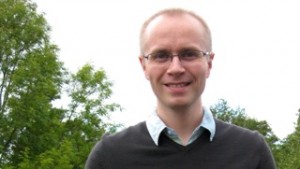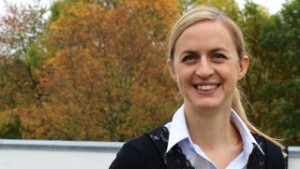Bio-Value SPIR is a new Danish R&D platform bringing universities, large and small businesses together in order to make new sustainable solutions for biorefining technologies. It will run for five years with a 21.45 million Euro budget.
In July 2013 the Bio-Value SPIR platform was granted 80 million DKK from the Danish Council for Strategic Research and The Danish Council for Technology and Innovation. The platform has a total budget of 160 million DKK (21.45 million Euro) and will run the next five years. The partners in the platform will deliver the other 80 million DKK and include companies like Haldor Topsøe, Novozymes, Arla, Rockwool, DLG and the Norwegian company Borregaard plus four Danish universities.
Bio-Value SPIR holds six projects focusing on different parts of the value chain from optimizing biomass production to upgrading and adding value to lignin and sugar streams. It also has two sub-platforms focusing on SME and socio-economics respectively. In the middle of October BioRefining Alliance met the partners at a kick-off meeting in Denmark.
Project on catalytic biomass conversion

One of the partners involved in Bio-Value SPIR is Haldor Topsøe. The company is specializing in catalytic conversion of mainly coal, gas and oil but has emerging biomass conversion activities: “We do not have any commercial activities within biomass conversion to chemicals yet, but it will probably change in the coming years,” says Esben Taarning from the R&D programme Bio2Chemicals at Haldor Topsøe. He is leading the Bio-Value SPIR project called “Value-added products from catalytic conversion of carbohydrate feed streams“.
“Biomass conversion is usually based on biological technologies such as fermentation. Using catalysis, processes will be able to operate at higher temperatures, pressure and with solvents and might tolerate other impurities,“ Esben Taarning says. The project focus on different elements but one of the central objectives is to make lactic acid from sugar through catalysis. Besides Haldor Topsøe also Aarhus University (AU) and Technical University of Denmark (DTU) are part of the project. Esben Taarning is looking forward to work together with scientists from the two universities: “Their detailed understanding of the conversion reactions of the sugar molecules is an important contribution to the project. It takes time to understand this complex organic chemistry. Time we don’t have in a company like Haldor Topsøe. DTU also has some equipment, which is very useful when studying these reactions,” Esben Taarning says.
Strong interaction between companies and universities

The cooperation between the companies and universities is not only about exchanging knowledge but also understanding each other’s perspectives. In the beginning of the process universities and companies might have different goals and criteria of success:
“Novozymes’ goal is to make the sugar streams pure enough for use in biochemicals. In BioValue SPIR the general hope is that we can go through the whole value chain from biomass to final products. You can be ambitious and say that we have to go all the way, but it will not always be profitable,” Lone Bækgaard, Department Manager at Biomass Technology R&D in Novozymes and part of the project “Upgraded sugar streams from biomass“, says and continues:
“In Novozymes we rather want to reach a part of the way and then be sure that this part will lead to profitable results instead of developing some technologies that are working but never will be profitable. But of course it would be cool if we during these five years develop a process that shows, we can do it”.
After the first few meetings in Bio-Value SPIR Professor at University of Copenhagen and Platform Coordinator, Jan K. Schørring is also very optimistic: “The advantage of the platform is that it is driven by the partner companies’ demand for innovation. There has already been a strong interaction between the companies and university partners in this process. It strengthens the confidence in the platform’s ability to deliver results” he says.
Platform management is crucial

Jan K. Schørring is convinced that Bio-Value SPIR will be able to deliver on several parameters: “I would like to see the platform generate patent applications, small and medium enterprises developing new products which can increase their income, start-up companies based on a new invention and – of course – a wide range of scientific publications,” he says.
But a platform this big and with so many partners also gives some challenges: “The challenges are of course that the R&D tasks described also will be realized and that we keep the momentum when we are having meetings. Therefore, it is necessary with a high level of communication and that partners are obliged to deliver results, living up to some criteria of success and being aware of the fact, that they are a part of a larger consortium”, Jan K. Schørring says. To meet these challenges a full-time platform manager has been employed.
Read more about Bio-Value SPIR at http://biovalue-spir.ku.dk and www.biorefiningalliance.com
Written by Julie Søgaard, Head of Innovation & Communication – BioRefining Alliance


